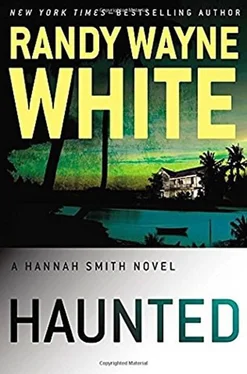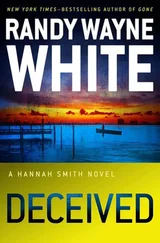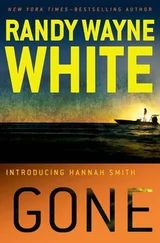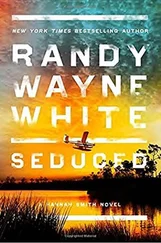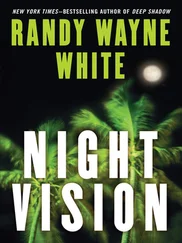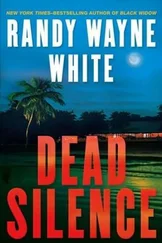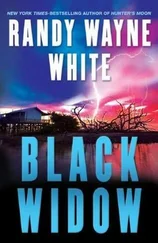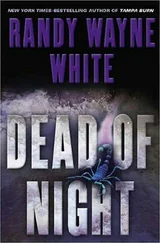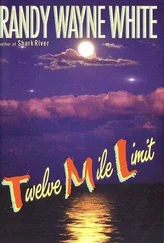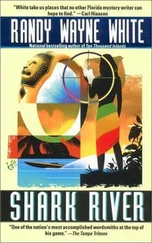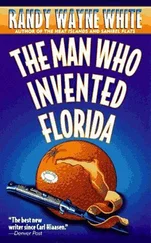I said, “I think you’re still flirting. If you are, it’s a pretty good approach.”
He smiled, a man with bright blue eyes who had been muscular and good-looking in his day. “Let’s just say I hope it’s a boat. Wouldn’t that be fun? I wish to heavens I was a better diver-or not so damn old.” He sounded wistful.
Carmelo, riveted to the screen, repeated, “Lots of fish. You want the girl to fish, Mr. Matás?”
Three times he’d asked that question over the engine noise but this time seemed to think it was a fresh idea now that we were idling in water that was black as oil but clear when I looked straight down if the sunlight hit it just right.
“No, thanks,” I told Carmelo, then reconsidered. I had never met a simpleminded person who owned an expensive red Bass Cat skiff outfitted with dual electric trolling motors that could pull the boat along as fast as some gas engines. It crossed my mind that a captain didn’t have to be smart as long as he produced results. I didn’t want to believe that. If I was right, Carmelo was either acting or the boat did not belong to him. As a test, I asked, “What kind of fish are we talking about?”
“Big-assed.” Carmelo laughed. “See?” He pointed to the fish icons that stacked and rematerialized like targets in a video game.
Had our guide said big-assed or big bass ? I gave him the benefit of the doubt. “Bass are fun on top of water plugs. Not that I’ve caught many. Is it best to anchor? Or do you use the trolling motors and cast into eddies?”
“Yes,” Carmelo replied.
Belton chuckled at that. “We’ll go ashore same place as yesterday.” He pointed. On the east bank, two jagged pilings, black as dinosaur teeth, showed where there had been a pier. Presumably, it had serviced the homestead I’d seen in photos. The pilings were only a few boat lengths upriver from the sunken object.
I remarked, “If a boat sunk at the dock, it could have drifted down. You might be right. But, Belton, this water’s not that deep. You don’t need tanks to find out, just a mask and fins. Doesn’t Carmelo free-dive?”
Carmelo, who had a tough-guy face to begin with, became positively fierce. “Nope. Ain’t gonna swim. Don’t tell me again.”
I said, “I wasn’t ordering you, it was a question. Are there gators around?” I hadn’t seen any, but there had to be a reason.
Belton, getting impatient, said to Carmelo, “I’ll take the wheel. Why don’t you untangle some of those ropes so we can tie up?”
Carmelo did, but I heard him mutter, “Girl… stick your hand in that water, you find out.”
***
AFTER EXPLORING the bricks and boards and fences of a homesteader’s vanished dream, I did it-stuck my hand in the river. I am too comfortable outdoors to be spooked by the power of suggestion, but it doesn’t hurt to be careful. First, I stirred the water with a stick. It was black as a winter night, clear as gel.
I looked around. No alligators… no snakes. Bull sharks liked to swim up rivers, but they had those cartoon fish to eat if they were after food. Same with piranhas, if some deranged person had smuggled them in-Theo came to mind. I pushed my sleeve up and made some false attempts, then decided If someone’s watching, they’ll think you’ve lost your mind. Just do it.
I did. Plunged my arm deep, but just for a moment. Then checked the path leading to the fallen homestead. I had left Belton there with Carmelo, Carmelo knee-deep in muck searching for bottles in a cistern that did indeed resemble a crypt. Most of the cistern’s roof had fallen in, the whitewash had faded. But a graceful brick arch remained to disprove any thoughts of sloppy work or ignorance.
A competent bricklayer had left his mark on this lonely place.
That meshed with something I’d read in the journal. The entry had motivated me to return to the boat and refresh my memory as well as to test the water. But I couldn’t open my backpack until I was alone, so I had roamed the property enjoying a polite interval of time. Holding Belton’s elbow, I had steadied him while we paced the distance from the chimney to the first fencerow. From the way the earth undulated, he guessed this quarter-acre patch had once been a garden. I asked, “What about salt pans?” Threw it out there in a breezy way to see how this amateur expert reacted.
All he said was, “Salt was hard to come by in those days. But you can’t make salt from a freshwater river.”
Was he right? That was something else I wanted to check privately. My biologist friend and sometimes lover had several types of salinity meters in his lab. But my lips would serve almost as well, as would the knowledge that saltwater is heavier than fresh so it sinks to the bottom.
Again, Capt. Summerlin’s journal had fired my curiosity.
As I moved around the boat, I heard Carmelo yell out a complaint or celebrate a discovery, his voice garbled by distance. Closer, somewhere inland, I heard branches cracking-the clumsy weight of an armadillo or feral hog, I assumed. I pushed my sleeves higher, leaned off the boat, and breached the surface with both hands. Water was cool, a slick, weightless feel, then I tasted it-fresh, but a hint of brine. That was encouraging.
I decided to find out if it was saltier on the bottom.
With my help, Carmelo had tied the boat’s bow to a tree after dropping a stern anchor. I hauled the anchor, sloshed the flukes clean, then opened my backpack in the hopes of finding something useful. Along with the journal, I had things I carry on my own boat in case I break down. There were extra clothes, bug spray, a sewing kit, flares and sunscreen, but nothing that could be used to collect water from the river’s deepest spot.
Finally I chose an empty Coors bottle from the Igloo and used fishing line to clove-hitch it to the yoke of the anchor. I wanted the bottle to sink fast. Air pressure, I hoped, would prevent it from filling until it got to the bottom.
When the bottle was secure, I pushed the boat away from the tree and waited for the line to pull taut. The drop-off was many yards astern. Too far to heave a ten-pound anchor. I realized I’d have to balance myself on the transom and use the engine as a knee brace to add distance when I tossed the thing. That was risky. So, before I went to work, I placed my phone on the console, along with my backpack and the journal, which I’d removed from its watertight bag-and couldn’t help reading a few passages before getting my hands wet.
It was a wise precaution. My first throw, I stepped on the anchor line. The next try, I checked my feet, got a good pendulum motion going, then heaved the anchor hard. Too hard. The engine, instead of supporting my weight, gave way, spinning to the left, and I went overboard. It is possible I hollered “Damn!” just before I hit the water.
But no harm done. I was wearing jeans, a long-sleeved blouse, and Nikes, not boat shoes, because I knew we’d be hiking. Fishing guides are used to soggy clothing. I’d also brought a towel. So I was smiling at my clumsiness when I surfaced. I combed hair out of my face and decided to enjoy the situation. It had been hot in the stillness of the homestead’s wreckage and the water was cool. So I sculled toward the middle of the river, seeing mimosa trees, dragonflies, the reflection of a passing egret from a duck’s perspective. Several hard green fruit that resembled apples, too, afloat like golf balls, and a flotilla of seedpods, long and brown. They parted at my approach. I continued on, only my eyes and nose, periscope-like, breaching the surface.
Thankfully, my ears weren’t submerged-which is why the sound of breaking branches caught my attention again. I listened briefly, gauging the size and weight, and decided I’d been wrong about the armadillo or some other small animal. Something big was pushing its way through the brush… not fast, but definitely headed my way.
Читать дальше
